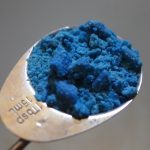
If you have access to coconuts locally — coconut milk makes a fantastic creamer for tea, coffee and cacao. It tastes incredibly good with all types of tea, coffee and chocolate drinks. Add a dash of cinnamon and it’s perfect! It’s so much more delicious and nutritious, easier to make, and so much cheaper than rice, soy, oat or almond milks.
Fresh coconut milk is the best. Although coconut milk is available commercially as liquid or powder, you can go to your nearest public market or supermarket, buy a mature coconut and ask them to grate it for you. Most markets selling coconuts have electric graters. Then you can squeeze out the milk at home. Often, with fresh coconut milk, the problem is shelf life. Even if kept in the refrigerator, coconut milk may spoil in just 3-4 days. However, if you pasteurise it, it will last much longer. Mine lasts for about 10 days, sometimes much longer. I use a quick pasteurisation process: put coconut milk in a stainless steel pot, heat gently to around 70-80 degrees Celsius, below simmering, for about 15-20 seconds. This process will destroy pathogens and spoilage organisms. And that’s it! But don’t let the coconut milk boil. All you really need to do is warm it up to below simmering temperature. But since pasteurisation is not sterilisation, you will need to refrigerate the coconut milk after pasteurisation.
Enjoy!






